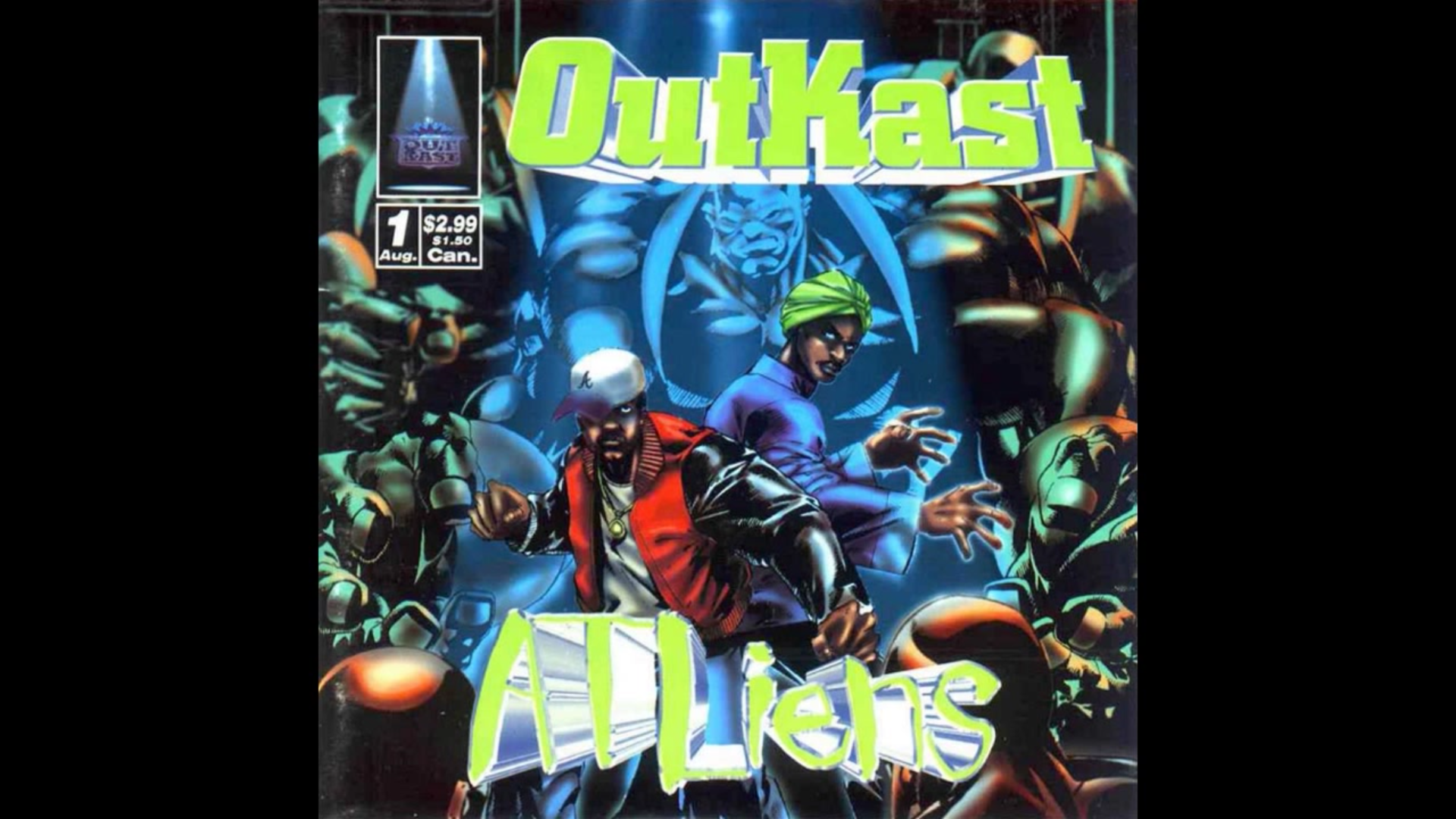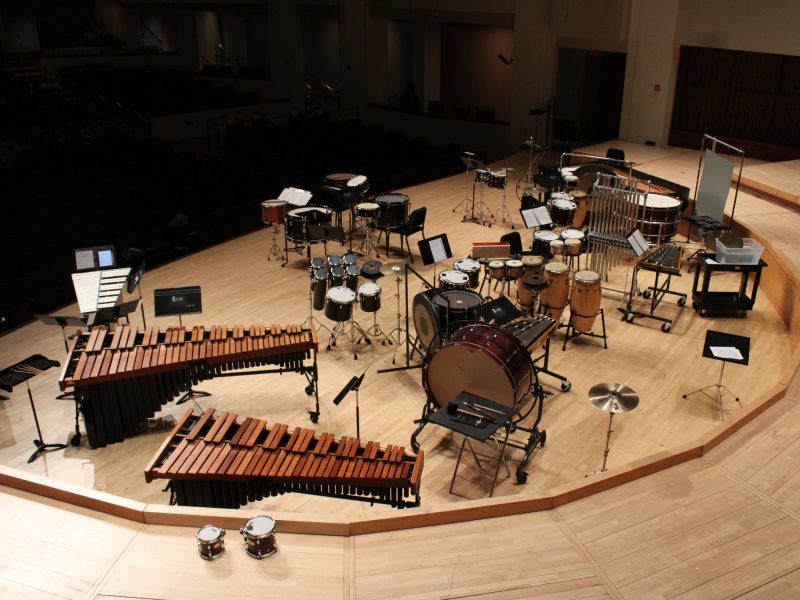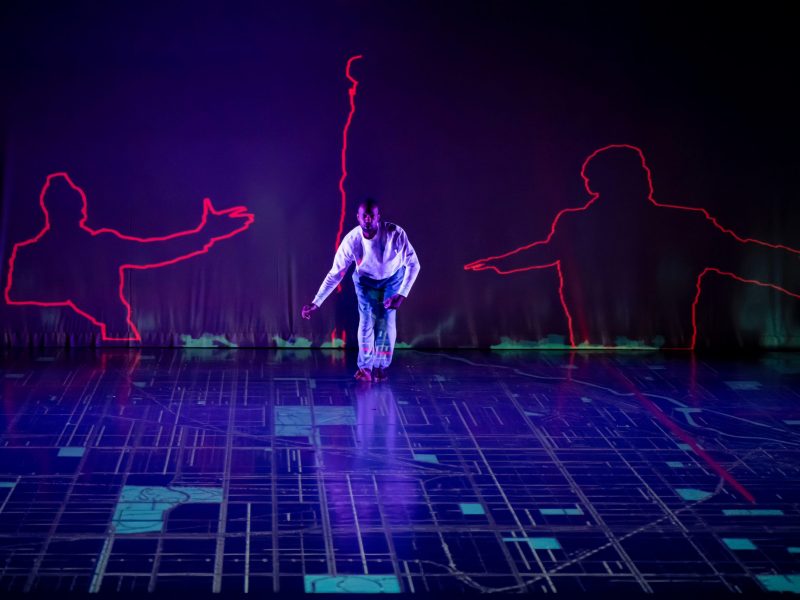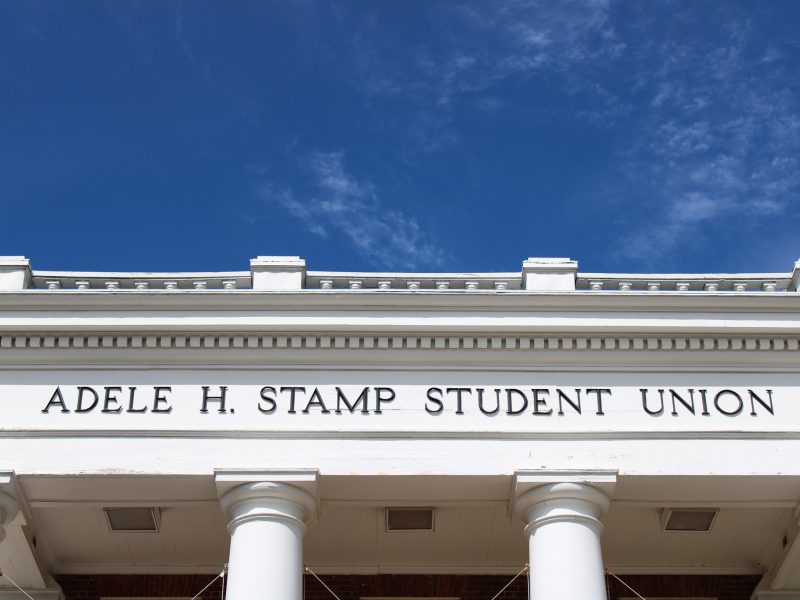OutKast welcomes listeners to their 1996 sophomore album, ATLiens, with a metallic voice announcing, “Greetings Earthling.”
The Atlanta rap duo of Andre 3000 and Big Boi truly were aliens to the rap scene at the time: exotic and intriguing, with a new way of doing things. They may as well have been extraterrestrials to the New York and Los Angeles-dominated genre, but their second album built on the success of their 1994 album, Southernplayalisticadillacmuzik, and brought them to the forefront of the hip-hop scene.
In 1995, OutKast won The Source Award’s best new rap group category, amid a war between New York City’s Bad Boy Records and Los Angeles’s Death Row Records. When the two won the award, the crowd expressed indignation toward the outsiders with a chorus of boos. Andre 3000 stepped up to the microphone and, with an irritated tone, said “The South got somethin’ to say. That’s all I got to say.”
Little more than a year later, OutKast released their double-platinum album ATLiens in August of 1996, which created the group’s niche among the ’90s hip-hop establishment.
OutKast’s smooth, funky sound was not common in hip-hop — they stood in stark contrast to the bombastic rhyming of Raekwon, Cypress Hill, Mobb Deep and Ol’ Dirty Bastard over aggressive boom-bap beats.
The duo’s love for George Clinton’s outer space-inspired music, as well as reggae funk and dub music, resulted in OutKast’s eclectic style. They were by no means the first to blend other genres with rap, but this cocktail of musical influences established the sound of Atlanta. The city found its new musical identity.
The rhymes that the duo raps on ATLiens focus on what they know — their lives in their hometown. They discuss the manipulation practiced by themselves and the Atlanta women they have been with on “Jazzy Belle,” the struggles of balancing life’s real problems versus the pleasure of vices in “Babylon” and the lifestyle of urban Atlanta, as well as the rest of the South, on the title track, “ATLiens.”
While OutKast discusses their fame on tracks like “Elevators” and “Ova da Wudz,” their verses had such an impact because they resonated with the lifestyle that so many lived in the South at the time. Big Boi and Andre 3000 know what it’s like to live a simple life filled with financial, familial and social problems — it was the life they had been living as 18-year-olds just three years prior. They never forgot their roots on ATLiens, making the album an effective glimpse into southern culture.
Fast forward 20 years from the album’s release, and Atlanta rap is dominated by trap music, featuring Young Thug, Lil Yachty, Rich Homie Quan and Migos. These rappers mutter inaudible rhymes on top of overwhelming, bass-heavy beats with their vocals so distorted by auto-tune that it is difficult to prove it is indeed their own voice. Though Andre 3000 expressed admiration for Future, a pioneer of this genre, on a February radio interview, he said this music is shockingly different from the songs that first brought Atlanta’s rap scene to the national stage.
Where Big Boi and Andre 3000 once rapped about the lives and struggles of everyday people in Atlanta, Lil Yachty raps about “juggin’ off them stacks / countin’ up them racks,” and his song “Good Day” is titled as such “Cause I’m rich, rich, rich.” Atlanta rap was once about telling the story of everyday people who live a life unknown to the rest of the country. Today, it is about explaining that you have a lot of money in the most creative way possible. Unless OutKast has a surprise reunion album in store for us, that seems unlikely to change.



